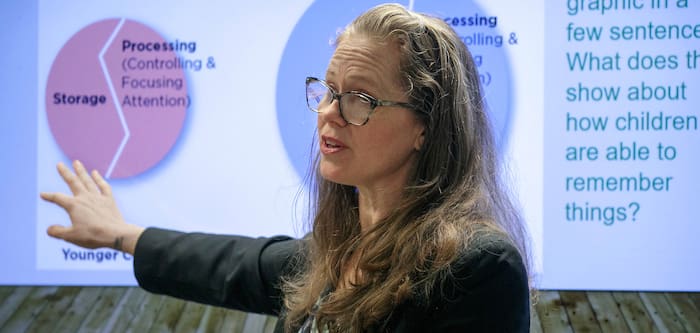Degree Details
The fully online Master of Education in learning systems technology program prepares instructional designers and learning scientists to act in teaching and administrative roles. Our graduates analyze problems and apply solutions for learning, including planning, preparation, implementation, evaluation, and management. They can apply these skills in public schools, community colleges, higher education institutions, business, industry, government, military, and medical settings or facilities.
This 36-hour master’s degree prepares you for the design, production, and application of new instructional design methods. You will learn to create and design compelling documents and electronic displays, cutting-edge interactive tutorials for web-based delivery, instructional blogs, purposeful and effective webpages, complete instructional packages using digital images and film clips, courses using a variety of course management systems, learning resource centers, and much more.
Request More InformationAt a Glance
| Degree: | Master of Education (M.Ed.) in Learning Systems Technology |
|---|---|
| Hours: | 36 |
| Format: | Online |
| College: | College of Humanities, Arts, Social Sciences, and Education (CHASSE) |
Admission Requirements
All applicants must meet the following requirements:
- All applicants for both regular and conditional admission must submit a Biographical Data Form
- Baccalaureate degree from an institutionally or regionally accredited institution with a cumulative grade point average of at least 2.7 (4.0 scale), or
- Master’s degree from an institutionally or regionally accredited institution with a cumulative grade point average of at least 3.00.
- Admitted to the UA Little Rock Graduate School. Learn about the steps to apply.
Graduation Requirements
- Successful completion of approved program of study
- Passing the comprehensive exam or successfully defending a portfolio presentation
Student Resources
The Master of Education in Learning Systems Technology degree program is designed to align with the National Educational Technology Standards (NETS) for Teachers and Administrators set forth by the International Society for Technology in Education (ISTE). The NETS are the standards for learning, teaching, and leading in the digital age which are recognized and adopted worldwide. Learn more at:

